Related Research Articles
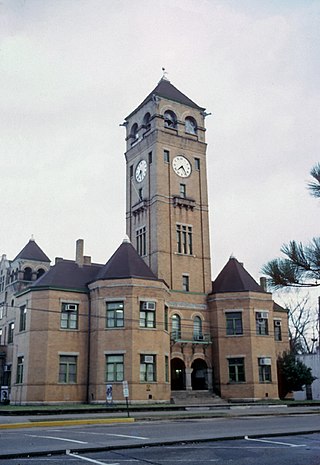
Macon County is a county located in the east central part of the U.S. state of Alabama. As of the 2020 census, the population was 19,532. Its county seat is Tuskegee. Its name is in honor of Nathaniel Macon, a member of the United States Senate from North Carolina.

Auburn is a city in Lee County, Alabama, United States. It is the largest city in eastern Alabama. The population was 76,143 at the 2020 census. It is a principal city of the Auburn-Opelika Metropolitan Area. The Auburn-Opelika, AL MSA with a population of 193,773, along with the Columbus, GA-AL MSA and Tuskegee, Alabama, comprises the greater Columbus-Auburn-Opelika, GA-AL CSA, a region home to 503,124 residents.
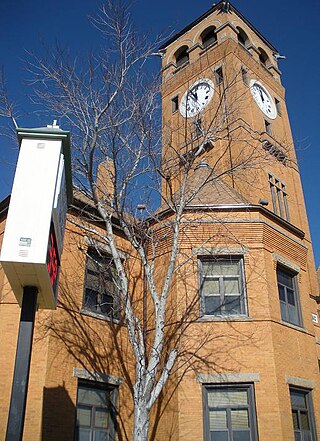
Tuskegee is a city in Macon County, Alabama, United States. General Thomas Simpson Woodward, a Creek War veteran under Andrew Jackson, laid out the city and founded it in 1833. It became the county seat in the same year and it was incorporated in 1843. It is the most populous city in Macon County. At the 2020 census the population was 9,395, down from 9,865 in 2010 and 11,846 in 2000.
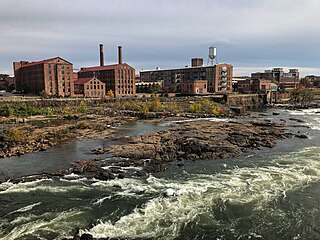
Columbus is a consolidated city-county located on the west-central border of the U.S. state of Georgia. Columbus lies on the Chattahoochee River directly across from Phenix City, Alabama. It is the county seat of Muscogee County, with which it officially merged in 1970. Columbus is the second most populous city in Georgia, and fields the state's fourth-largest metropolitan area. At the 2020 census, Columbus had a population of 206,922, with 328,883 in the Columbus metropolitan area. The metro area joins the nearby Alabama cities of Auburn and Opelika to form the Columbus–Auburn–Opelika Combined Statistical Area, which had an estimated population of 486,645 in 2019.

The Tuskegee Study of Untreated Syphilis in the Negro Male was a study conducted between 1932 and 1972 by the United States Public Health Service (PHS) and the Centers for Disease Control and Prevention (CDC) on a group of nearly 400 African American men with syphilis. The purpose of the study was to observe the effects of the disease when untreated, though by the end of the study medical advancements meant it was entirely treatable. The men were not informed of the nature of the experiment, and more than 100 died as a result.

Tuskegee University, formerly known as the Tuskegee Institute, is a private, historically black land-grant university in Tuskegee, Alabama. It was founded on Independence Day in 1881 by the state legislature.

Robert Russa Moton was an American educator and author. He served as an administrator at Hampton Institute. In 1915 he was named principal of Tuskegee Institute, after the death of founder Booker T. Washington, a position he held for 20 years until retirement in 1935.
Ruby Nell Sales is an African-American social justice activist, scholar, and public theologian. She has been described as a "legendary civil rights activist" by the PBS program Religion and Ethics Weekly, and is one of 50 civil rights leaders showcased by the Smithsonian National Museum of African American History and Culture in Washington, DC.
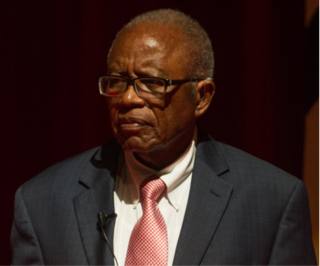
Fred David Gray is an American civil rights attorney, preacher, activist, and state legislator from Alabama. He handled many prominent civil rights cases, such as Browder v. Gayle, and was elected to the Alabama House of Representatives in 1970, along with Thomas Reed, both from Tuskegee. They were the first black state legislators in Alabama in the 20th century. He served as the president of the National Bar Association in 1985, and in 2001 was elected as the first African-American President of the Alabama State Bar.

Interstate 85 (I-85) is a part of the Interstate Highway System that runs from Montgomery, Alabama, to Petersburg, Virginia. In Alabama, the Interstate Highway runs 80 miles (130 km) from I-65 in Montgomery northeast to the Georgia state line near Valley. Although it is nominally north–south as it carries an odd number, I-85 travels east–west through the state. It is the primary highway between Montgomery and Atlanta. The Interstate also connects Montgomery with Tuskegee, Auburn, Opelika, and, indirectly, Phenix City and Columbus, Georgia.

State Route 81 (SR 81) is a 10.432-mile-long (16.789 km) state highway in the central part of the U.S. state of Alabama. The southern terminus of the highway is at an intersection with US 29/US 80/SR 81 Truck in Tuskegee. The northern terminus of the highway is at an intersection with SR 14 in Notasulga.
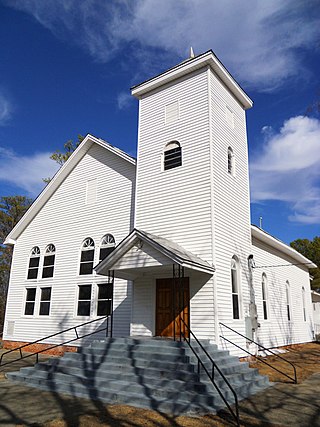
The Shiloh Missionary Baptist Church and Rosenwald School is a historic Missionary Baptist Church and Rosenwald School located near 7794 Highway 81, Notasulga, Alabama in Macon County, Alabama. The property contains two buildings that are both associated with the Tuskegee Syphilis Study. The church building is a gable-front frame building with a frame bell tower serving as a prominent landmark along the highway. The building has been sided in vinyl, c. 1990, but the interior of the building retains its c. 1916 appearance, complete with decorative painted graining on doors, pews, wainscoting, and other defining features of the building. The Rosenwald School, built c. 1922 and remodeled c. 1936, retains its historical and architectural integrity from the 1930s when a New Deal agency expanded the industrial room and made other interior and exterior changes. The Rosenwald School is undergoing renovation as of February 2011. Both buildings have been listed in the Alabama State Historic Register.

The Piedmont Atlantic megaregion is a neologism created by the Regional Plan Association for an area of the Southeastern United States that includes the Atlanta, Birmingham, Charlotte, Memphis, Nashville, Research Triangle (Raleigh-Durham), and Greensboro-Winston-Salem-High Point metropolitan areas. The megaregion generally follows the Interstate 85/20 corridor. According to Georgia Tech, the Piedmont Atlantic represents over 12 percent of the total United States population and covers over 243,000 square miles (630,000 km2) of land.

The Guatemala syphilis experiments were United States-led human experiments conducted in Guatemala from 1946 to 1948. The experiments were led by physician John Charles Cutler, who also participated in the late stages of the Tuskegee syphilis experiment. Doctors infected 1,300 people, including at least 600 soldiers and people from various impoverished groups with syphilis, gonorrhea, and chancroid, without the informed consent of the subjects. Only 700 of them received treatment. In total, 5,500 people were involved in all research experiments, of whom 83 died by the end of 1953, though it is unknown whether or not the inoculations were responsible for all these deaths. Serology studies continued through 1953 involving the same vulnerable populations in addition to children from state-run schools, an orphanage, and rural towns, though the intentional infection of patients ended with the original study.
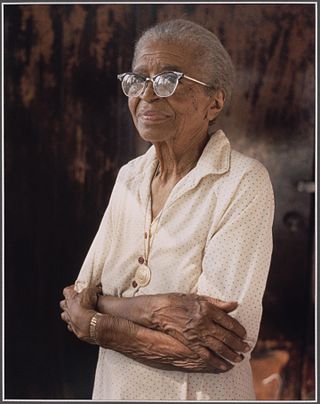
Eunice Verdell Rivers Laurie (1899–1986) was an African American nurse who worked in the state of Alabama. She is known for her work as one of the nurses of the U.S. Public Health Service Syphilis Study in Macon County from 1932 to 1972.
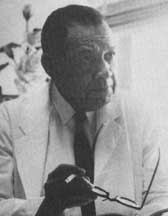
Eugene Heriot Dibble Jr. (1893–1968) was an American physician and head of the John A. Andrew Memorial Hospital at the Tuskegee Institute in Alabama. He played an important role in the Tuskegee Syphilis Study, which was a clinical study conducted on syphilis in African American males from 1932 to 1972.
The Scottsboro Boys Museum is located at 428 West Willow Street in Scottsboro, Alabama, in the United States. Its focus is on the Scottsboro Boys case, which involved nine young African American falsely accused in 1931 of raping two white women while hoboing aboard a freight train.
Tuskegee University Legacy Museum, also known as the Legacy Museum is located at Tuskegee University in Kenney Hall at 1 Benjamin Payton Drive adjacent to the National Center for Bioethics in Research and Health Care. Like the Tuskegee Human and Civil Rights Museum, the museum's origins stem from Bill Clinton's 1997 apology to the victims of the Tuskegee Syphilis Study, formally known as the Official Proclamation by President William Jefferson Clinton against the misdeeds of the United States Public Health Service in its Untreated Syphilis Study in the Negro Male in Macon County, Alabama, 1932-1972. Clinton's apology first led to the creation of the University's Bioethics Center in 2006, and the museum followed in 2009.

The Alabama Black Belt National Heritage Area is a National Heritage Area encompassing Bibb, Bullock, Butler, Choctaw, Clarke, Conecuh, Dallas, Greene, Hale, Lowndes, Macon, Marengo, Monroe, Montgomery, Perry, Pickens, Sumter, Washington, and Wilcox counties in the Black Belt region of Alabama. The Center for the Study of the Black Belt at the University of West Alabama serves as the local coordinating authority.
References
- ↑ "Tuskegee History Center – US Civil Rights Trail".
- ↑ "Tuskegee History Center". Encyclopedia of Alabama.
- ↑ Brown, DeNeen L (1997-05-16). "'You've got bad blood': The horror of the Tuskegee syphilis experiment". Washington Post. ISSN 0190-8286 . Retrieved 2022-04-22.
- ↑ Williford, Cynthia (2017-05-17). "Tuskegee history center marks 20 years of memorializing victims of Tu…". Opelika-Auburb News. Archived from the original on 2022-04-22. Retrieved 2022-04-22.
- ↑ Elliott, Debbie (2021-02-16). "In Tuskegee, Painful History Shadows Efforts To Vaccinate African Americans". NPR.org. Retrieved 2022-04-22.
- ↑ Lynch, John A. (2019-09-01). The Origins of Bioethics: Remembering When Medicine Went Wrong. MSU Press. pp. 52–64. ISBN 978-1-62895-380-0.
- ↑ Braund, Kathryn H.; Waselkov, Gregory A.; Christopher, Raven M. (2019-08-13). The Old Federal Road in Alabama: An Illustrated Guide. University of Alabama Press. p. 114. ISBN 978-0-8173-5930-0.
- ↑ Reeves, Jay. "Trump administration opposing bid for syphilis study museum". The Philadelphia Tribune.
- ↑ "Auburn University". ETSU Appalachian Teaching Project.
- ↑ "Tuskegee (AL) Human and Civil Rights Multicultural Center | C-SPAN.org". www.c-span.org.
- ↑ "Lowe's helps with repairs at Tuskegee History Center". www.wtvm.com.